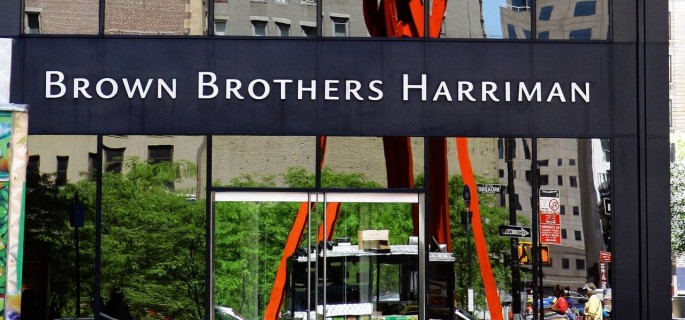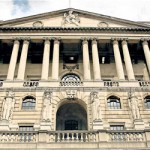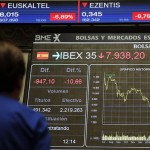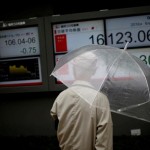Foreign-Exchange Traders Staff Up for Brexit

Many banks have slashed currencies-trading staff; now they are girding for an anticipated surge of activity stemming from this week’s U.K. vote
Scott Schultz won’t be making any social plans for this Thursday evening. The co-head of foreign-exchange trading at Brown Brothers Harriman & Co. will be in the bank’s New York office deep into the night, helping with what could be a torrent of currency trades.
The U.K. votes that day on whether to remain in the European Union. The uncertainty of what an exit—or Brexit, as many call it—would mean for Britain and the Continent could spark a surfeit of trade orders and volatility, especially in the pound and euro.
“It could get pretty crazy,” says Mr. Schultz, who hopes to catch a few hours sleep in a hotel near his office that night before returning Friday morning to resume trading.
That anticipated burst of activity could test many banks’ ability to process currency transactions at a time when most have slashed trading staff. Hamstrung by new regulations and a recent currency-price-rigging scandal, banks have been shifting more resources into sophisticated electronic trading systems.
Now, days before the vote, these financial firms are scrambling to get bodies on trading floors around the world to ensure clients’ trades are executed.
The banks’ plans illustrate their concern that the electronic platforms and algorithms that dominate foreign-exchange trading may have serious limitations during high-volume periods.

Many electronic platforms are designed to shut down when markets become too volatile and limits on losses or risk are exceeded. The problem with some of these platforms is that they are programmed to trade on preset rules and aren’t able to recognize or respond to market-moving events.
In times of market turmoil, human traders have an edge because they are able to incorporate an event such as a Brexit into their assessment on pricing.
“This is why I think it’s important to never switch completely to algorithmic trading,” said Collin Crownover, head of currency management at State Street Global Advisors in Boston, which manages about $2 trillion. Brexit, he added, “is precisely this type of event that threatens liquidity.”
Banks have shrunk trading floors in recent years as postcrisis regulations have constrained their ability to take on risk, making foreign-exchange trading less profitable for many.
A price-rigging scandal has also hastened the move to more electronic trading, which often offers more transparency on pricing. Some of the world’s biggest banks paid about $10 billion in fines to global regulators in 2014 and 2015 and plead guilty to conspiring to manipulate currency prices.
The number of foreign-exchange traders employed at major banks has fallen 22% since 2010, according to London research consultancy Coalition. At the same time, the proportion of foreign-exchange volume that is traded electronically has jumped to 76% from 57%, according to a report from Greenwich Associates.
Banks staffed up and insisted that traders stay overnight for the 2014 Scottish referendum. They did the same for Y2K, when people feared computer systems would crash at the turn of the millennium. These all-nighters passed without major incident, traders said.
Still, some fear that Brexit could generate the type of volatility that roiled the market in January 2015, when the Swiss National Bank abandoned its longstanding cap on the franc. The currency surged nearly 30% against the euro in the minutes after the decision, leading to big losses for banks, brokers and individual investors.
One of those retail brokers was FXCM Inc., which was rescued by an emergency $300 million lifeline from investment firm Leucadia National Corp. Many of FXCM’s clients had been trading on borrowed money, exacerbating their losses.
Ahead of the Brexit referendum, FXCM has boosted its margin requirements for clients invested in the pound, euro and certain derivatives linked to the U.K.
“We believe there is a chance of disruption and highly illiquid conditions in the forex markets during the coming weeks due to the upcoming British referendum,” the company said in an email to its clients.
J.P. Morgan Chase & Co. will have most of its London traders on the floor to handle orders when polls close before handing over trading to Asia, said a person familiar with the matter. Morgan Stanley and Deutsche Bank AG also plan to have extra staff on trading floors that night, according to people familiar with the plans.
Brad Bechtel, a managing director at Jefferies Group, plans to stay up late, along with reinforcements in the bank’s London, New York and Asian offices. He thinks most of his clients will avoid putting in orders on the night of the referendum, when prices could be most erratic, but he added. “There will still be clients that just have to do trades.”
Making matters worse that day, polls in the U.K. close at 5 p.m. New York time, when foreign-exchange desks typically empty out between the close of New York trading and the open of Asian session.
“It’s probably the most illiquid time of the day,” Mr. Schultz said.
Source: WSJ





























